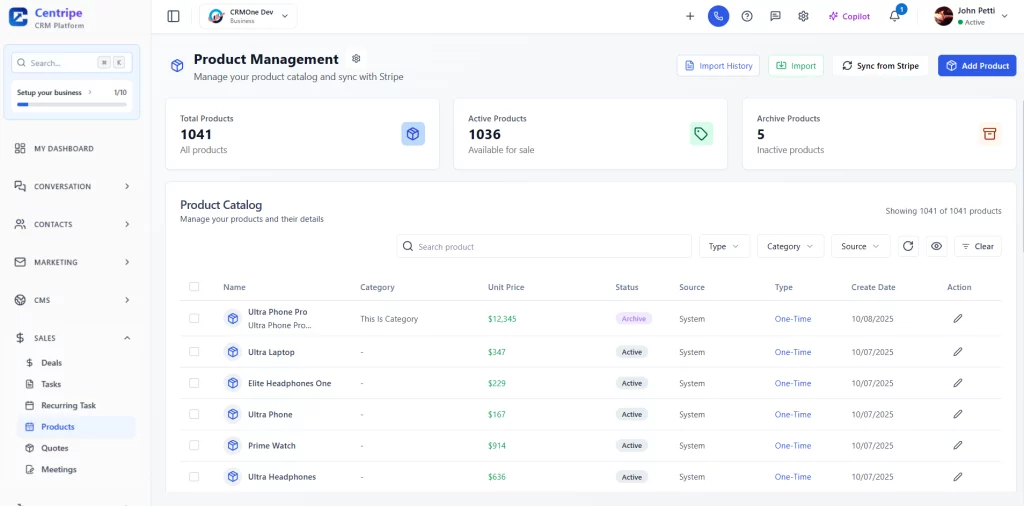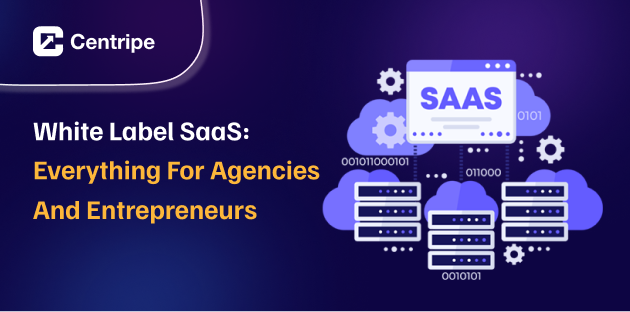The global SaaS market is projected to reach $908.21 billion by 2030, with white label SaaS solutions driving a significant portion of this growth.
Agencies are aware of the fact that white label SaaS holds a strategic advantage. They don’t have to invest time or capital in making the software.
Recent industry data shows that 73% of agencies using white label SaaS report increased client satisfaction and retention rates.
The companies rebrand and resell existing software solutions, which opens the door for new and recurring revenue opportunities.
What is White label SaaS?
Simply put: One company has already created a software that is brilliant, and the other company will rebrand and resell it as their own product.
This lets resellers offer great technology solutions without putting in-house development.
The original provider handles all technical aspects including development, maintenance, security updates, and infrastructure management. The reselling partner focuses on branding, marketing and customer relationships.
This division of labor creates a win-win scenario where both parties can excel in their areas of expertise.
Note: SaaS can cost $100,000-$500,000 upfront, while licensing white label platforms typically costs between $500-$5,000 per month, enabling faster profitability.
Key Benefits of White Label SaaS for Modern Businesses
Accelerated Market Entry and Competitive Advantage
When you talk about starting a business, especially a software one. How much time does it take? On average, it takes 18-24 months from concept to launch.
Well, not anymore. White label SaaS removes this timeline. You can do it in a week now and provide enterprise-grade solutions.
Significant Cost Reduction and Risk Mitigation
An important factor that I think most businesses want to stay way from is the burning cost of a product.
If we talk in practicality, developing a custom CRM system can cost between $150,000 and $500,000, depending on complexity, features, and the development team involved.
If you have a white label SaaS, with a fraction of that amount, you can do multiple things. Like marketing, building customer relationships, and more.
Unlimited Scalability Without Technical Overhead
Easy adaptability, so you don’t need extra tech resources or any other costs. These solutions work well for 10 clients or even 10,000.
This scalability lets growing agencies add services without making operations more complex.
Complete Brand Customization and Client Experience Control
I personally love this feature. If you want something unique to sell to clients, then customizing white label SaaS is something you will like.
Agencies can create a strong brand. It improves their market position and gains client trust.
Create custom domains, personalized interfaces, and features that fit specifically to client needs.
Strategic Focus on Core Business Strengths
Agencies have time to focus on their main strengths like marketing strategy. Giving proper resources to client consulting to make them understand fully, or business development by outsourcing software development and maintenance.
How White Label SaaS Operations Work: A Step-by-Step Process
Phase 1: Partner Selection and Licensing Agreement
Choose the perfect white label SaaS provider. Set up the licensing terms.
This agreement defines the usage rights, customization capabilities, pricing structures, and on going support.
Phase 2: Brand Integration and Platform Customization
After licensing, the customization process begins. This includes using your brand elements like logos and colors.
Set up custom domains and tweak features to match the needs of the target market. Prefer user-friendly customization tools that require less technical expertise.
Phase 3: Market Launch and Client Acquisition
Once the solution is ready, agencies can begin marketing. The white label SaaS can be sold on its own or combined with other services. So you provide a complete solution package. And if you want, you can charge higher prices.
Phase 4: Ongoing Management and Growth
The SaaS provider takes care of all backend tasks. This includes updates, security, and managing infrastructure. This helps the reselling agency focus on client success, grow accounts, and expand their market reach.
Popular White Label SaaS Categories and Market Applications
1. Customer Relationship Management (CRM) Solutions
White label CRM platforms let agencies provide full customer management tools.
From lead tracking to sales pipeline management, from integrated marketing automation to using AI-based features, everything is done smoothly.
2. Marketing Automation Platforms
These advanced systems manage email campaigns, social media, SMS marketing, and analytics reports. White label marketing automation tools are booming. Businesses are focusing more on digital marketing efficiency.
3. E-commerce and Payment Solutions
Ready-to-use online store builders and payment platforms help agencies assist retail clients. They do this without needing to create complex e-commerce systems. These solutions often include inventory management, order processing, and customer analytics.
4. Project Management and Collaboration Tools
White label project management platforms offer agencies branded tools. You can easily track client projects. Focus on team collaboration and resource management.
Such tools are popular among creative marketing agencies and consulting firms.
5. Analytics and Business Intelligence Dashboards
Data visualization and reporting platforms gather information from various sources. They create customizable dashboards. White label SaaS solutions are becoming crucial. Businesses want better insights into their operations and marketing performance.
2026 White Label SaaS Market Trends and Industry Insights
The white label SaaS market is changing fast. This shift comes from a growing need for tailored solutions and better vendor skills.
Agencies using white label SaaS solutions see client onboarding speeds up by 60-80%. This leads to a much better customer lifetime value.
AI integration is now common in white label SaaS platforms. Providers are adding AI-driven analytics, automated workflows, and predictive features.
The rise of API-first architecture is making white label SaaS solutions more flexible and integrable than ever before.
Modern platforms can easily link with current client systems. This builds comprehensive technology ecosystems instead of just isolated software tools.
No Spam. No calls. Unsubscribe anytime.
Essential Criteria for Choosing Your White Label SaaS Partner
Technical Capabilities and Customization Depth
Evaluate the extent of branding and functional customization available. Top white label SaaS providers give strong customization choices and keep the platform stable and high-performing.
Scalability and Performance Infrastructure
This is an important factor. Make this thing transparent. Ask the provider, talk with their teams and discuss what you will be required in the near future.
Your projected growth should be handled carefully by the platform without any performance degradation.
Choose providers like Centripe with strong cloud infrastructure.
Integration Ecosystem and API Capabilities
Modern businesses require seamless data flow between systems. Choose white label SaaS solutions that integrate fully with popular business tools. Also, ensure they offer custom API access to meet your unique needs.
Support Quality and Partnership Approach
The level of ongoing support can make or break your white label SaaS implementation. Look for providers that give dedicated partner support, clear documentation, and regular updates on improvements.
Security Standards and Compliance Certifications
Data security has become a vital thing in the tech world. Make sure that your white label SaaS provider has all the industry-standard security certifications. Should comply with regulations like GDPR, HIPAA, etc.
Maximizing Success with White Label SaaS Implementation
Create clear go-to-market strategies that show your target audience the value you offer. Develop clear onboarding steps. These help clients quickly see the benefits of their new tools.
Invest in training your team to become experts in the white label SaaS solution. This expertise gives you an edge and helps you offer better support to your clients.
Consider making special service packages that combine your software with your unique skills and insights.
How Centripe Stands Out in White Label SaaS?

Our platform blends strong marketing automation with a flexible CRM core and many white label features. It also includes:
- Full UI customization, including logos, colors, and custom domains.
- Seamless integration with popular marketing and sales tools.
- Scalable infrastructure built to grow with your agency.
- Robust automation workflows for email, SMS, and lead management.
- Dedicated reseller support to help you launch fast and successfully.
Conclusion:
As a marketing agency, you have to be ahead of the competitors. While everyone is rushing, take a step back to focus on the things that matter.
Move with pace and plan. I think this works best because with planning, you have a vision. White label SaaS is an amazing opportunity for you to earn recurring revenue.
It helps build a brand easily. Even if you are a beginner at this, you just have to focus on building a customer base. The technical complexity is something that hinders the growth; that’s what the provider will take care of.
